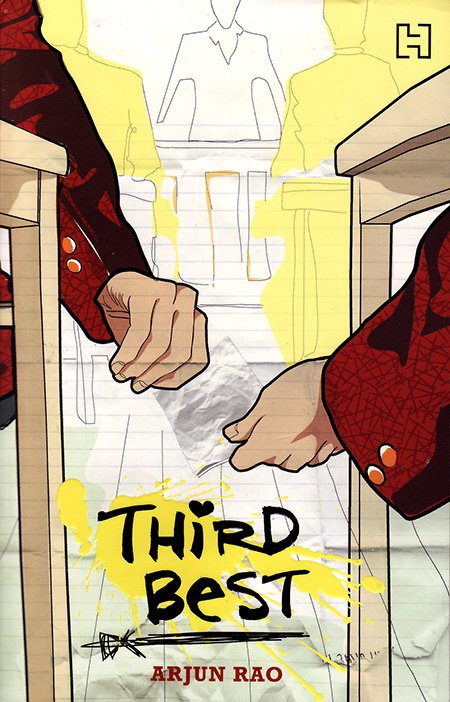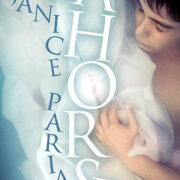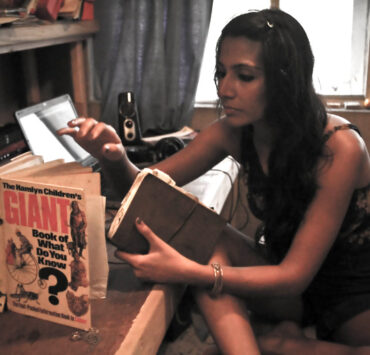The book Third Best is author Arjun Rao’s debut novel and is all about getting inside the head of a schoolboy who is leading the typical boarding school life and experiencing the realisation of first loves, friendship, trust, and above all, loyalty. The book is fresh and offers different perspectives, and even though it tends to veer towards the clichéd, it always spins off in another direction just before reaching the edge.
We caught up with Arjun Rao for an exclusive interview about the book and life in boarding schools in India. Read on for excerpts—

“Becoming a teacher doesn’t guarantee you respect, you still have to earn it.”
Tell us a little bit about yourself.
I studied at The Lawrence School, Lovedale, went to college in Delhi at St. Stephen’s College, then on to the University of St. Andrews, and finally ended up at Doon. If I wasn’t teaching or writing, I think I might have ended up becoming a somewhat prolific supporting actor. That, and I’m extremely jealous of anyone who can play a musical instrument.
Now that you’re in a similar position as the erstwhile Mr. Gomez (in Third Best), do you, on some level, identify yourself with him?
I wish! No, Nathaniel is too cool for me to be him. Naturally, some of our responses might be kind of similar, keeping in mind context and that sort of thing, but Nathaniel has it far easier than I do. He’s been doing this job for a much longer time. I think it makes it easier for an experienced teacher to be able to make that call in a split second. Besides, he was working in a time when Housemasters ruled the roost in public schools! They were allowed tremendous freedom to run Houses, a decision that some Headmasters regretted occasionally, I’m sure.
Do you believe that there is a fine line between ‘tale telling’ and doing the right thing?
Ah, yes, the most difficult question to answer. I believe that kids—and this is especially true with boys—need codes, moral or otherwise, to survive in groups. It is part of their initiation and acceptance into a society in which they perceive positions of responsibility and hierarchies as important. There are things that men don’t tell their wives about their friends’s behaviours even as adults (and these aren’t just boarding school types). You cannot expect a child (and yes, even a 16-year-old is a child) who has been told about this all his life to suddenly pick up and leave it all behind and begin to confide in his teachers. And this is why it is the responsibility of the adults in charge to create an environment in which students aren’t bullied or afraid. Teachers could easily spend lifetimes trying to earn the trust of a single student but when that happens, it all seems worth it, even the salaries.
Give us some insight into your days in boarding school. Do you have any stories to share?
Now, this will really get me into trouble! I was, on reflection, the worst kind of student. I fought with my teachers all the time, refused to study till the last minute, was bullied a hell of a lot, fell in love all the time, but through it all I loved school. Not once did I believe that my parents have sent me to this horrible place and that they don’t love me. I couldn’t believe that places like Lovedale existed, where a child, however obnoxious or unbathed he/she may be, can have such a great time. I suspect one of the reasons I became a teacher was because I knew that schools are the few places that children should be allowed to remain children and jump in the mud, play in the rain, fight like hell with each other, and remain friends for life. Oh, and get their hearts broken over and over again.
Which scene from the book is your favourite?
You know, there were bits I had completely plotted and planned and then there were others that just happened while I was writing them. I think I enjoyed writing Nirvan’s story the most. It was the original focus of what I was trying to do with Shore Mount. And then emerged these friends of his, Faraz and Gautam. I loved writing the bit when the two of them are on vacation and are discovering life off campus. The sports were definitely fun.

Third Best book cover.
In your book, there is an underlying theme of love. Do you think that in today’s day and age, youngsters are still searching for love, or is it all just a dating game?
You know, I don’t think you can discount that elusive word, love, even in the 21st century. I think all human beings are looking for acceptance and occasionally do mistake this for love, and none more so than teenagers. Many kids today are growing up in a world in which they are constantly reminded that they have a greater sense of entitlement and they also believe that they are entitled to love and sex and whatever else whenever they want. So, there are 13-year-olds asking their mothers about condoms and birth control pills and there are boys plying the same girls with vodka (“because it doesn’t smell, your parents won’t know a thing”) and then filming sexual acts with them and blasting them out all over the internet.
One of the reasons that I set the book in the nineties was because of the Internet, or rather, the lack thereof. Life was still private back then. If you liked someone, that was something that was your secret. If a girl secretly held your hand in class or in a corridor or while at a film, it remained a secret. The first time you kissed someone, away from prying eyes, it remained that way. Today, while desperately trying to be accepted by everyone, kids seem to think that if they tell the whole world that they are involved with someone, it makes them cool. I, on the other hand, believe that it’s sad. There’s no greater feeling than falling in love, and it seems to have got muddled up somehow.
Who is your favourite music artist?
How do I honestly answer this question? I grew up listening to my father’s music. The first song I knew the lyrics to was ‘Money for Nothing’ by Dire Straits. I think I was around eight at the time. My only ambition was to have “chicks for free”, honestly believing it to be a reference to some form of chicken at every meal, every day for the rest of your life. That is, until the lyrics were explained to me and I think my response was “blech!”. I loved the music of the nineties, something I only discovered in school and in college. Most of the music I listen to was given to me by family, friends, and my students. I think the only musicians I started to listen to all by myself were Kings of Leon and Pete Yorn. Love them, by the way.

“One of the reasons that I set the book in the nineties was because of the Internet, or rather, the lack thereof.”
Do you think that teachers still play an important role in shaping the lives of their students, or is it that students aren’t looking up to teachers in that way any more?
People go on and on about how teachers in the past were these legendary beings who climbed mountains and taught them about birds and used Jim Morrison to teach English poetry, but I believe teachers are doing far more today. For one, teachers in the past didn’t have to deal with crazy deadlines and cutoffs that could destroy careers. Besides, schools too seem to have become places that entitle students and parents to expect a service. “We pay x-amount of money, we want the best college for our kids”. Messrs Chipps, Thackeray, and Keating would have all found it difficult.
Kids, like those in the past still think that adults, especially their parents and their teachers, are idiots. But still, an adult who is willing to take a child seriously will become his/her hero for life. And teachers are best placed to be able to do this and boarding school teachers even more so as the kids are always right there. But it requires time and a whole lot of patience, something that school systems may not necessarily be interested in any longer with the greater corporatisation of school education. Becoming a teacher doesn’t guarantee you respect, you still have to earn it.
What/who is your source of inspiration? What finally got you to writing this novel?
I think it would be foolish for me to deny that my own time studying at a boarding school and now teaching at one has not had an impact on my writing. I was very careful, though, to make sure that anyone who was actually there in my time or anything that occurred that even vaguely places me in the same venn diagram, did not find its way into the story. I originally conceived of this as a play, one that could be performed by the kids I teach, but as I plotted the story further, I realised that there was more to this than a play that could last around two hours. I really started committing myself to the story in 2008, finished up some time in 2009 (while on a break from teaching) and here we are.
The friends we make at school are the friends we never forget. Are you still friends with your classmates from boarding school? We would love to hear about some of your endeavours.
I think boarding schools are these weird places that allow groups of completely dissimilar people to become close friends. You look at them then and you look at them now and you wonder, ‘What on earth are these guys (still) doing together?’ and you will never be able to figure it out. I am still extremely close to my batch (as we boarding school classes are wont to call each other), more so to the boys than the girls, and I have no idea how that happened. Maybe it is that after a point, the girls want to be with men who sound more sensible and are not the guys who trod on your toes as you patiently waited years for them to learn how to dance. Either that, or that they just want to be with men who don’t start weeping while singing two-hundred-year-old school songs. But they still tolerate us men, and eventually do start singing along with us and when we do go back for reunions, they are as gung-ho about it all. Batch mates are stuck with each other for life and there’s nothing you can do about it except realise it fairly early on, give your teachers hell, and then weep when they finally ask you to leave.








